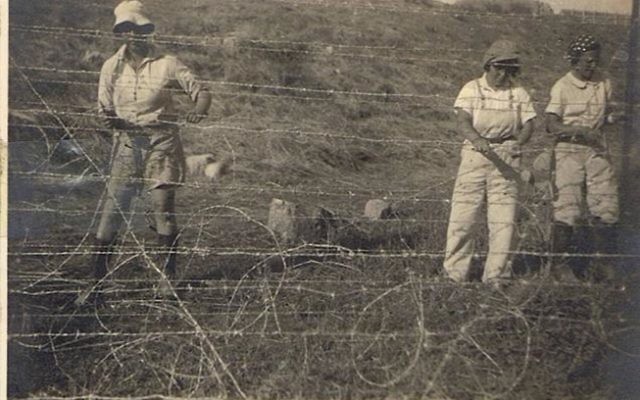Changing the Kibbutz Movement in Israel
By Eli Sperling
Kibbutz Kfar Ruppin was founded in the northern region of Eretz Yisrael on Nov. 25, 1938. Part of a greater facet of Zionist development, the kibbutz movement began in 1909, helping serve the settlement and agricultural needs of Zionist pioneers.
Established as fully communal settlements based on socialist, egalitarian values, kibbutzim are an iconic aspect of Israeli culture and society. They have produced some of Israel’s most influential musicians, writers, academics and artists.
Today, with around 400 residents, Kibbutz Kfar Ruppin, true to its pioneering roots, produces agricultural goods such as wheat, dates and citrus fruit. But the community draws the bulk of its revenue from a privately managed plastics factory housed on the kibbutz. Representative of a greater trend amongst kibbutzim, Kfar Ruppin has privatized all its industries, adapting to a changing and generally more privatized economy in Israel as a whole.
According to a University of Haifa study, only a quarter of Israel’s kibbutzim are still operating as fully equal, cooperative communities. Emphasizing new, private industries on the kibbutzim and opening opportunities for kibbutz members to work outside jobs, many of these communities have changed the core communal principles on which they were founded.
Today, with many kibbutz members receiving salaries from these privatized industries or outside jobs, the rising cost of living in Israel has put a strain on these communities.
This growing norm is far removed from the old model. Historically, each kibbutz member would have his or her living expenses fully covered. Members’ jobs would not be reflected in their financial compensation, which was uniform for every kibbutz member, dishwashers and doctors alike.
While kibbutzim still maintain a strong presence in Israel, and many of them have thriving, wealth-producing industries, like many aspects of Israeli society, they are changing to adapt to a new economy and a more globally minded Israel.
For further reading:
- Bolton-Fasman, Judy. “Voices From the Children’s House.” Tablet, Nov. 4, 2016, www.tabletmag.com/jewish-life-and-religion/216532/voices-from-the-childrens-house.
- Palgi, Michal, and Shulamit Reinharz. “One Hundred Years of Kibbutz Life: A Century of Crises and Reinvention.” New Brunswick, N.J.: Transaction, 2011.
Eli Sperling is an Israel specialist and assistant program coordinator for the Center for Israel Education (www.israeled.org).





comments